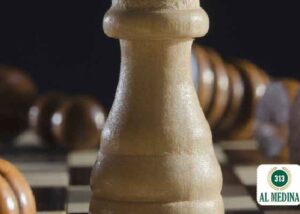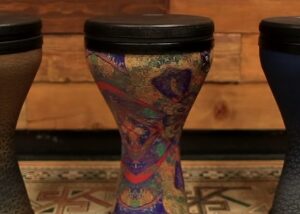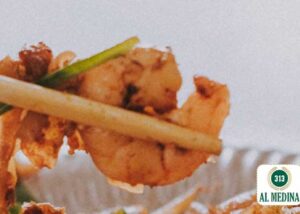Is Music Haram in the Hanafi Madhab?
Quran
Hadith
Islamic Text
According to the Hanafi Madhab, music and all musical instruments are Haram except for the Duff.
النَّبِيَّ صَلَّى اللهُ عَلَيْهِ وَسَلَّمَ يَقُولُ: لَيَكُونَنَّ مِنْ أُمَّتِي أَقْوَامٌ، يَسْتَحِلُّونَ الحِرَ وَالحَرِيرَ، وَالخَمْرَ وَالمَعَازِفَ
Sayidina Abu Malik al-Ash’ari (May Allah be pleased with him) narrates that he heard the Prophet (peace be upon him) say, ‘There will appear people in my Ummah who will consider adultery, silk, alcohol and musical instruments (Ma`azif) to be lawful.’ (Sahih al-Bukhari, 5590).
In the above Hadith not only do we find a clear prohibition on musical instruments, but also a warning that there will be people who try to permit them along with other prohibitions. This is incredibly dangerous. It is reprehensible when a person falls into sin. However, it is far worse when a person attempts to change the law itself. The Sharia is the divine law revealed by Allah (Most High), no one has the right to change it. To attempt to do so is a far greater concern than falling into the sin itself.
The word Ma`azif is used in the Hadith. This word refers to musical instruments.
وهو جمع معزف، وهو آلة اللهو. (البناية شرح الهداية)
It (Ma`azif) is the plural of Mi’zaf, and it refers to a musical instrument. (Imam al-Ayni, al-Binayah).
وَالْمَعَازِفُ آلَاتُ اللَّهْوِ الَّتِي يُضْرَبُ بِهَا. (العناية شرح الهداية)
And Ma`azif are musical instruments that are struck. (Imam al-Babarti, al-Inayah).
Due to the clear prohibition found in the above and other Hadith narrations, the Hanafi scholars asserted in their works that musical instruments are prohibited (Haram).
الْمَلَاهِيَ كُلَّهَا حَرَامٌ
All instruments are prohibited. (Imam al-Zayla’i, Tabyeen).
Some scholars went further and mentioned that simply keeping musical instruments is Makruh, even if one does not use them.
وَلَوْ أَمْسَكَ شَيْئًا مِنْ هَذِهِ الْمَعَازِفِ وَالْمَلَاهِي كُرِهَ وَيَأْثَمُ وَإِنْ كَانَ لَا يَسْتَعْمِلُهَا كَذَا فِي فَتَاوَى قَاضِي خَانْ. ( الفتاوى الهندية)
If he keeps hold of any musical instruments then it is Makruh (disliked) and sinful, even if he does not use them. As mentioned in Fataawa Qadi Khan. (al-Fataawa al-Hindiyah).
ولو أمسك الخمر في بيته للتخليل جاز ولا يأثم. ولو أمسك شيئا من هذه المعازف والملاهي يكره و يأثم و إن كان لا يستعملها لأن إمساك هذه الأشياء تكون للهو عادة. (فتاوى قاضيخان)
If he keeps wine in his house, in order to produce vinegar then it is permitted and not sinful. However, if he keeps hold of any musical instruments then it is Makruh (disliked) and sinful, even if he does not use them. Because keeping such instruments is usually for (musical) entertainment. (Fataawa Qadi Khan).
Although the general rule is that musical instruments are prohibited, many Hanafi scholars mentioned a specific exception for the Duff (see link below for more details).
وَفِي الْمِعْرَاجِ الْمَلَاهِي نَوْعَانِ مُحَرَّمٌ وَهُوَ الْآلَاتُ الْمُطْرِبَةُ مِنْ غَيْرِ الْغِنَاءِ كَالْمِزْمَارِ سَوَاءٌ كَانَ مِنْ عُودٍ أَوْ قَصَبٍ كَالشَّبَّابَةِ أَوْ غَيْرِهِ كَالْعُودِ وَالطُّنْبُورِ لِمَا رَوَى أَبُو أُمَامَةَ أَنَّهُ – عَلَيْهِ الصَّلَاةُ وَالسَّلَامُ – قَالَ «إنَّ اللَّهَ بَعَثَنِي رَحْمَةً لِلْعَالَمِينَ وَأَمَرَنِي بِمَحْقِ الْمَعَازِفِ وَالْمَزَامِيرِ» وَلِأَنَّهُ مُطْرِبٌ مُصِدٌّ عَنْ ذِكْرِ اللَّهِ تَعَالَى وَالنَّوْعُ الثَّانِي مُبَاحٌ وَهُوَ الدُّفُّ فِي النِّكَاحِ. (البحر الرائق شرح كنز الدقائق)
In al-Miraaj it states, musical instruments are of two types. (The first type is) Haram, musical instruments (unaided by singing) like the flute (or other wind instruments) irrespective of it being made of wood or cane like the Quena. Or other instruments like the lute and tanbūra. Due to that which was narrated by Abu Umamah, that he (the Prophet peace be upon him) said, ‘Indeed Allah (Most High) sent me as a mercy to the worlds and commanded me to eradicate musical instruments and flutes’. Also, such instruments are a diversion and serve as an impediment to the remembrance of Allah Most High. As for the second type, it is the Duff at Nikah (ceremonies) and it is permissible. (Imam Zayn al-Deen Ibn Nujaym, al-Bahr al-Raiq).
The prohibition on musical instruments was so clear that the scholars differed over having to compensate a person if one were to destroy his musical instrument.
طْلَبٌ لَا يَجِبُ الضَّمَانُ بِكَسْرِ آلَاتِ اللَّهْوِ
قَالَ فِي الْهِدَايَةِ: وَنَظِيرُهُ الِاخْتِلَافُ فِي كَسْرِ الْمَعَازِفِ أَيْ آلَاتِ اللَّهْوِ كَالطُّنْبُورِ. وَقَالَ فِي الْبَحْرِ: وَهُوَ يَقْتَضِي أَنْ يُفْتَى بِقَوْلِهِمَا هُنَا لِأَنَّ الْفَتْوَى عَلَى قَوْلِهِمَا فِي عَدَمِ الضَّمَانِ بِكَسْرِ الْمَعَازِفِ. اهـ. (رد المحتار على الدر المختار)And in al-Hidaayah (it states), and similar to it is the difference of opinion regarding the destruction of musical instruments like the tanbūra. He (Imam Ibn Nujaym) said in al-Bahr, and Fatwa should be given according to their (the Saahibayn) opinion here, because their Fatwa dictates no compensation for destroying musical instruments. (Imam Ibn Abideen, Radd al-Muhtaar).
As seen above, music is Haram in the Hanafi Madhab and considering it to be permissible directly opposes the warning in the Hadith above.
And Allah (Most High) Knows Best.
Answered by Shaykh Noorud-deen Rashid (01.12.2021)
See also:
Is Doumbek drum permitted in the Hanafi Madhab?
See also (video):






